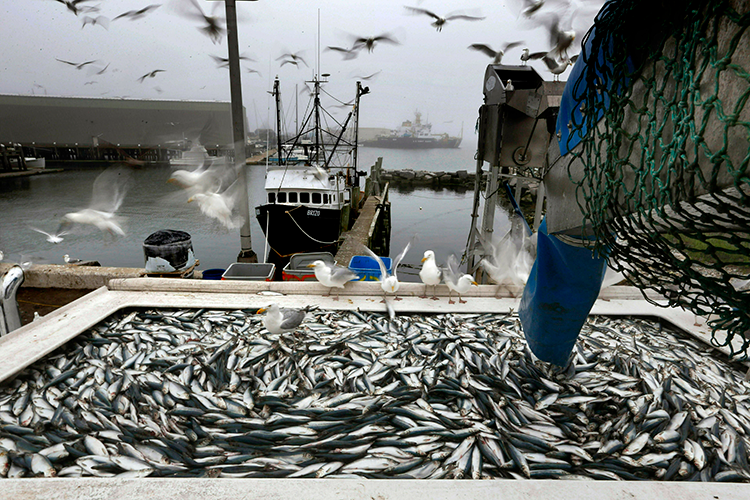SCOTUS majority appears to embrace 'Kisorizing' or overturning Chevron deference, oral arguments indicate

A case involving the herring fishing industry could topple a landmark 1984 decision by the U.S. Supreme Court. Photo by Robert F. Bukaty/The Associated Press.
Conservative justices on the U.S. Supreme Court appeared ready to limit or overturn the 1984 decision that established Chevron deference, the principle that federal courts should defer to reasonable agency interpretations of ambiguous laws, according to media coverage of oral arguments Wednesday.
One option, explored by Justice Amy Coney Barrett, was “Kisorizing” the Chevron doctrine, which was a reference to the 2019 decision in Kisor v. Wilkie that trimmed the use of Auer deference, Law360 reports.
Auer deference is the principle that courts should defer to an agency’s reasonable interpretation of ambiguous regulations.
Justice Elena Kagan, author of the Kisor opinion, “promptly adopted” Barrett’s term, according to Law360. She and the high court’s two other liberal justices expressed support for continuing to rely on the doctrine because agencies have the expertise to interpret ambiguous laws.
Justice Ketanji Brown Jackson suggested that overturning Chevron deference could turn courts into “uber-legislators.”
“My concern is that if we take away something like Chevron, the court will then suddenly become a policymaker,” Jackson said.
Justice Brett Kavanaugh saw a downside to keeping Chevron deference in place, according to the news coverage by the New York Times, SCOTUSblog, Reuters and the Washington Post.
He said Chevron deference “ushers in shocks to the system every four or eight years when a new administration comes in” and adopts “massive change” in areas such as securities, communications and environmental laws.
The term Chevron deference is based on the decision Chevron USA v. Natural Resources Defense Council, which affects vast swaths of the regulated U.S. economy, according to an ABA Journal preview of the Jan. 17 oral arguments.
The Supreme Court is considering the issue in two cases involving federal regulations that require herring fishing boats to pay for on board monitors to prevent overfishing.
The cases are Loper Bright Enterprises v. Raimondo and Relentless Inc. v. Department of Commerce.
Groups supporting the fishing operators are the Cause of Action Institute in Arlington, Virginia, a legal organization that is helping to represent New Jersey fishers, and the New Civil Liberties Alliance, a legal organization (also based in Arlington, Virginia) that is representing Rhode Island fishers.
The conservative groups “have financial ties to the network of foundations and advocacy organizations funded by Charles Koch, a billionaire who has long supported conservative and libertarian causes,” according to the New York Times.
See also:
“Supreme Court could limit agency power after agreeing to reconsider Chevron deference”



